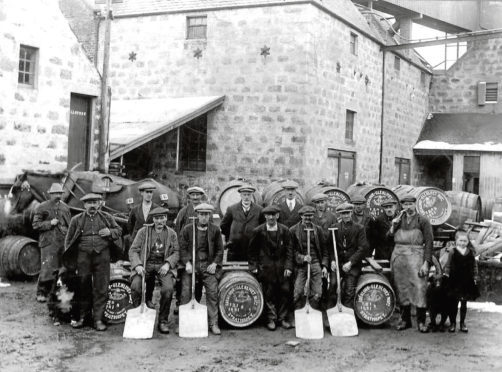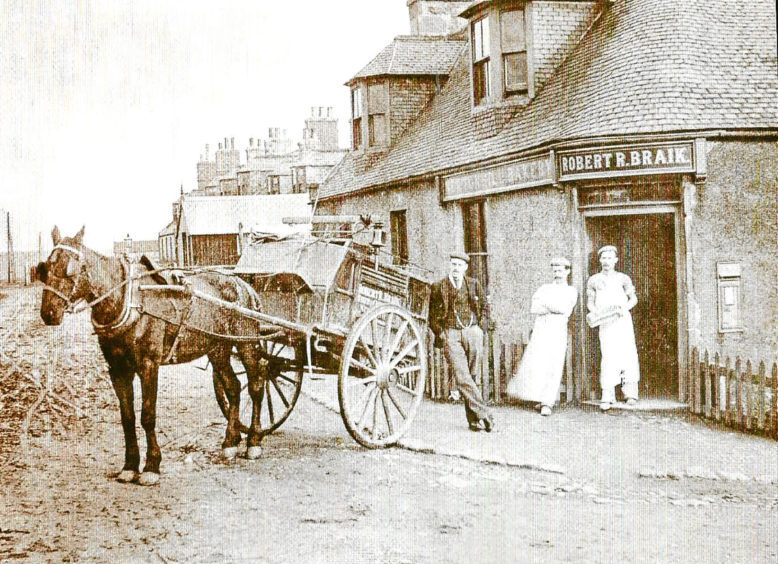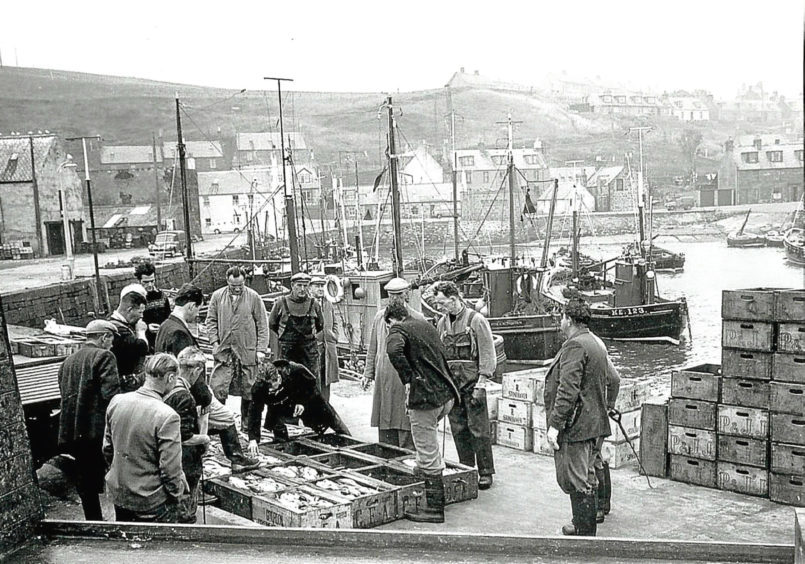Academic David Northcroft tells Neil Drysdale of his quest to chronicle changing ways of life.
They are the collective voices of the north-east, and not just of one generation, but those who have lived in the region throughout the last 100 years.
And even now, more than 15 years after he started his personal oral history project, David Northcroft is continuing to meet and interview an eclectic range of individuals from his beloved part of the country.
The former vice-principal of Aberdeen University decided to embark on his venture at the start of the new millennium.
At that stage, he admits he had no idea how the work would gradually expand and develop, as his caseload of subjects increased from 10 to 20 and thence to 100 and ever upwards.
But now, he has assembled over 500 taped interviews, which have been lovingly transcribed, and will eventually be bestowed to his former university as a legacy for future generations.
It is the biggest-ever chronicle of a changing world and Mr Northcroft has chosen to cast his net wide, from the Granite City to the Broch and Deeside and Moray.
The 76-year-old said: “I didn’t want to restrict myself to any one group of people or profession.
“So I have talked to some weel-kent faces such as (entertainers) Buff Hardie and Robbie Shepherd, (businessmen) Jimmy Milne and Stewart Milne, (footballer) Neil Simpson, and Joel Sande (father of the pop star, Emeli).
“But I have concentrated on the so-called ‘ordinary’ folk who have kept our north-east communities ticking over – plumbers and farmers, fishers and district nurses, rural primary school teachers, joiners and factory hands.
“The aim has been to create an archive which will be deposited at the university and provide a comprehensive insight into everyday life in our region during the course of the 20th century and beyond.
“Indeed, a few of my earliest interviewees could recall the outbreak of World War I. I am privileged I could record their memories for posterity.
“I reckon the result is a unique portrait of a tumultuous century, as seen from the perspective of those who lived through it in the north-east.
“I hope the work I have done will come to be valued as a record by which future generations will be better able to understand – not just in historical or sociological terms, but in human terms – what life was really like.”
Mr Northcroft’s labours have already yielded three books: Grampian Lives, Volume I, 1900-1950; Volume 2, 1950-2000; and Aberdeen Lives: At Work and Play.
They are handsome tomes, replete with vivid images, ranging from sepia-tinted photographs to pictures and selfies snapped on mobile camera phones.
Even that feature – the rapid growth of new technology from personal computers and iPhones to XBoxes and drones – illustrates the radical rate of progress which has taken place in the last 20 years.
Yet, Mr Northcroft – who lives in Muchalls and is married to Kathleen, with two sons, Jonathan and Matt – is among those who believe that, in some regards, the more things change, the more they remain the same.
He said: “I genuinely believe we are living in a region which is well worth celebrating as a stronghold of clear and firm values.
“Some I have noticed include stoicism, reliability, respect for the climate, soil and sea, an abiding sense of communal solidarity and a warmth and willingness to help our fellow men and women.
“Of course, any project which spans the lives of several generations is bound to throw up debate. And I’ve looked at to what extent in our age of electronic virtual realities, credit card existence, shifts in the traditional pattern of family life and the collapse of old industries, our traditional qualities still hold.
“Is the 20th century – as captured by my witnesses – really a story of welcome progress?
“People will have many different views. But I thought it was crucially important to collect the reminiscences and perspectives of those who actually saw their brothers come back from the trenches, or endured the privations of rationing in the 1940s and 1950s, or lived and worked in fishing communities where death at sea was an all-too-common occurrence.
Mr Northcroft has no intention of simply shutting the lid on his rich collection. On the contrary, this canny chiel is continuing to demonstrate that history never stands still for those who seek it out.
As he travels throughout his roots and embraces the real world, he has amassed a holy grail of material for those who follow in his footsteps.
To share your story, e-mail davidjnorthcroft@gmail.com or call 01569 730621.
The farmer
George ‘Dod’ Forbes was one of the redoubtable farm workers who poured their heart and soul into their outdoor lives in the north-east of Scotland.
Born in 1914, and brought up in Slains, he was forced by family economics to leave school at 14 and seek work as a farm labourer.
These were the days of the ‘feeing’ system, whereby every six months, those looking for employment would present themselves at their local ‘feeing market’ – in his case at Ellon – where they were inspected by the area’s farmers.
As he told David Northcroft, it was a gruelling regime for anybody selected.
Mr Forbes said, on being asked how much money he was offered when he started out in 1928: “Nae very muckle. It was £7 for a whole six months, plus my food and board.
“The work was from six in the morning until five thirty at night. I had to go out on freezing winter’s mornings and slice up turnips for the sheep, all among the muck.
“I never got hold of any new news, just the older sort. All you had to eat was brose and porridge after the morning wash.
“You’d take off your sark and do your best to scrub your bits and pieces with a block of Lifebuoy soap. Just the body above the waist: you never bothered with anything further down.
“And that’s how it went on. Sleep, work, supper, work… sleep, work, supper, work. You just had to keep at it. Do the job until it’s finished and when it’s done, it’s done.”
As a hard grafter, matters gradually improved for Mr Forbes. He saved up enough over the long years to finally obtain hios own croft and raised his own cattle.
And he showed sufficient vim and vigour as the decades passed that Mr Forbes celebrated his 100th birthday in 2014.
As Mr Northcroft added: “In these pre-mechanisation days, and with the horse as king, the work was physically hard and intensive, a matter of horse power and muscle power, muscle power and horse power.”
Catch of the day
The other great defining activity of the north-east, at least till the downturn of the last 40 years, has been fishing. As with agriculture, the industry has evolved its own distinct socio-culture and community life.
In addition to the large centres such as Fraserburgh, Peterhead and Banff, the region’s coast has been dotted with small and proudly self-sufficient coastal communities such as Gardenstown, Johnshaven, Sandend, Gourdon and Whitehills.
Isabel Harrison was born in 1926 in Buckie, one of the larger fishing centres and was the latest in a long line of families who depended for their livelihood on the fruits of the sea and could testify how, amidst all the hardships and dangers, fisher folk led lives of stoical acceptance, of family warmth and great pride.
Yet they were, even in Buckie, regarded as a class apart and prone to misunderstanding and even disdain.
At school, she and her like could be shunned not only by fellow pupils but the teachers too, being regarded as ‘fool’ (foul) smelling aliens.
When she came home with yet more tales of being marked down in favour of the daughter of a tradesman, her father consoled her with the refrain, ‘Never you mind, Isabel- withoot us, the toonsers wid ne naewhere a va!’
He knew that the town’s wealth depended on the efforts of himself and his like. His industry gave his family a good life in their Main Street house, a dwelling where four generation of Harrisons lived and where Isabel stayed for more than 80 years in the same room where she had been born back in the 1920s.
She could recall the times when homes like hers had no bathrooms and the day when her father came home from a trip down south triumphantly hauling in a great tin basin which he had purchased for a pound.
And when, at last, an indoor toilet was fitted, it was the young Isabel who had the honour of using it first.
Her home showed evidence in other ways of the fisher folks’ domestic economy – the recess bed, the large hold-all cupboard, the “hanging press” or “glory hole”, and, on her walls, row after row of fine plates gathered from all her trips across the world.


